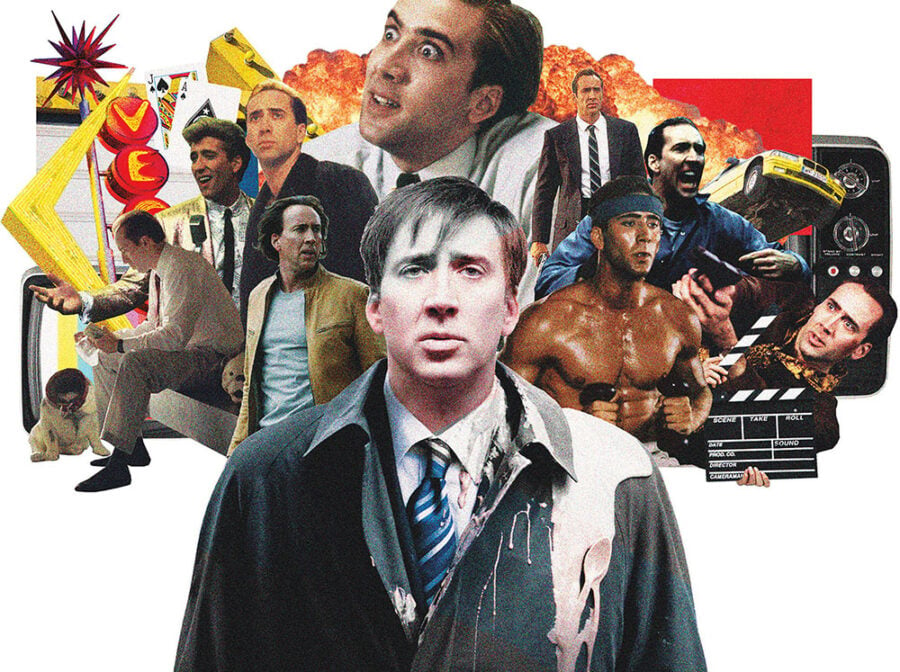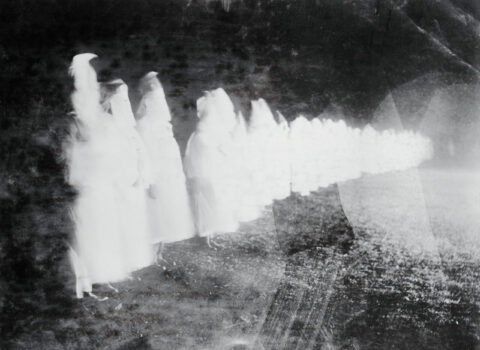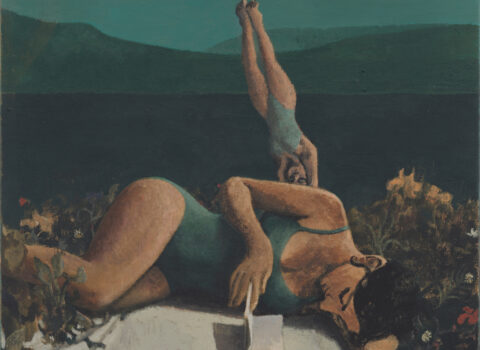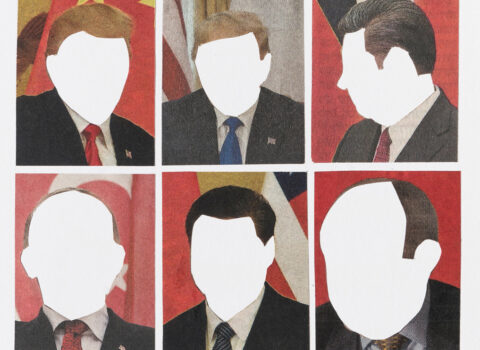
Collage by Dakarai Akil. Source images © Alamy
Discussed in this essay:
Age of Cage: Four Decades of Hollywood Through One Singular Career, by Keith Phipps. Henry Holt. 288 pages. $27.99.
Last fall, hoping to draw weary crowds back to the multiplex, AMC Theatres enlisted Nicole Kidman in what it dubbed “the biggest advertising campaign any theatre chain has ever made.” Solemn to the point of absurdity, the ad finds Kidman extolling the cinema as a temple of catharsis, where we go “to laugh, to cry, to care. Because we need that, all of us.” At the movies, she says, trying to emote through features…





